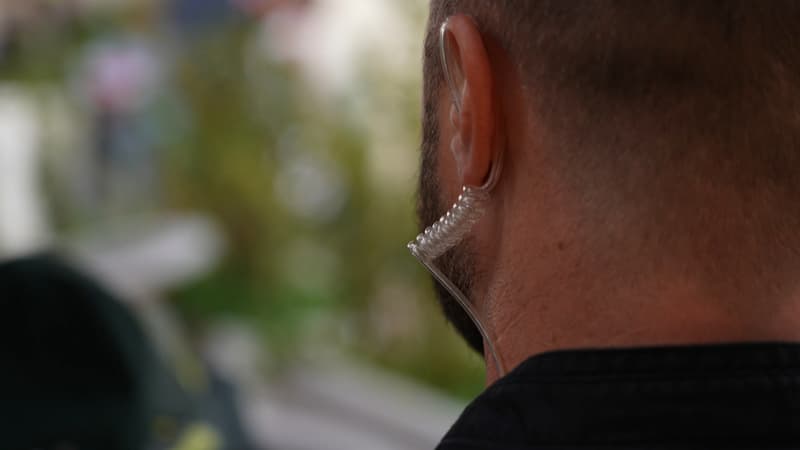Tonight, on Thursday, July 10, the French ambassador to Libya has an appointment in the old town of Tripoli. In the 300 meters that separate the restaurant’s car, the diplomat is closely followed by Gign Men, responsible for guaranteeing his protection.
Since 2011, Arab spring and the fall of Muammar Gaddafi, in power for more than 40 years, Libya has been prey to the greatest instability. Currently, two executives compete for power: the National Unit Government (GNU) installed in Tripoli, recognized by the UN and directed by Abdelhamid Dbeibah; The other in Benghazi, in the east, controlled by Marshal Khalifa Haftar and his children.
The presidential and parliamentary elections would take place in December 2021 under the sponsorship of the United Nations, but were postponed by Die Sine due to deep differences between West and East.
Close protection at all times
Regularly, the capital turns on. In mid -May, the clashes opposed loyal forces and powerful armed groups to Tripoli that the government tries to dismantle. These fights left at least six dead, according to the UN.
In this extremely tense context, being a French ambassador is a high -risk function, and it is thanks to the Gign antenna on the site that the embassy can continue with its missions. BFMTV could follow these men, in an exceptional immersion.
Before their appointment in the old town, the Gign men made identification the previous day. “The risk is in front but also high,” explains Brice, leader of the Gign Antena team. Even when the ambassador is on the table, men are attentive, some from inside the restaurant.
“I know that in the kitchens that are on the other side of the room, there is a door that takes me to the other facade, if I needed to take it out,” explains Guillaume, a member of the antenna, sitting a few meters from the ambassador. Examine each client who seeks potential threats.
“The group of individuals next to it came later. They just ordered coffees, chat with each other. The attitude is very smiling, the hands are not tense,” he analyzes.
Even if the diplomat is sitting near the window, Brice is still quite serene. “In fact, everyone sees it, but again, it is not someone who is recognized in the street and who comes to challenge. He has an Arab profile, mixes well in the population.”
Outside, Sylvain, a third man, turns the building. The three men are in constant communication thanks to their atria. A group of children who attract “little mortars” caught their attention for a moment. “There is no panic, less than a dozen, they are children and they have just left the scene,” he says.
Finally, the ambassador finished dinner. The return to his residence is launched. He asked for the imminent invoice. Followed for everyone, we prepare, it will move, “he orders Brice.
The Embassy directed by shots
The vehicles in which the delegation are protected are protected, but the way to return to the streets of Tripoli is still dangerous with large overloaded axes. “We are attentive. Pas in motion, we are vulnerable,” Brice points out.
And even when he is inside the ambassador, the diplomat is not invulnerable. In the ceilings of the buildings, armored posts have been installed to observe and defend themselves if necessary. On May 14 in the morning, while Tripoli hugged, the embassy was attacked four times by the mortar fire.
“The ball has arrived here,” illustrates Jean-Noël Poirier, the first advisor to the France Embassy in Libya, which shows the door amount. “We were very lucky. Two, three centimeters, it went to us,” he adds.
BFMTV could consult and transmit the video surveillance images that morning, in which we see the explosion. At the moment, the privileged hypothesis is that of a lost bullet, in the chaos of the capital.
“There are several versions. It is possible that the ballistic analysis that a small team with a mortar would like to point to the French embassy. We cannot be certain, but the analysis is a possibility,” adds Jean-Noël Poirier.
The ambassador’s residence was also affected, with an impact on its portal. “It is an instability that affects all the powers and diplomatic holdings present here. We are aware that it can begin at any time, and it is for this reason that we have the nearby means of protection,” explains Mustafa Mihraje, French ambassador to Libya. “So we are ready, but that, once again, does not prevent us from continuing to work normally.”
Since 2011, the French embassy in Libya has already had to leave the territory three times. If the situation was degenerated, the evacuation plans are ready along the way, the melodies or the seas.
Source: BFM TV


